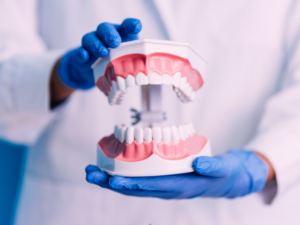Fluoride has long been recognised as one of the most effective tools in the prevention of tooth decay. Its addition to public water supplies, known as water fluoridation, has sparked much discussion over the years. However, numerous studies and decades of data have confirmed its safety and benefits for dental health, particularly in communities across Australia. Understanding the role of water fluoridation can help families make informed decisions about their oral care and contribute to healthier smiles for all.

What Is Water Fluoridation?
Water fluoridation is the process of adjusting the level of fluoride in public water supplies to the optimal level that helps prevent tooth decay. Fluoride is a naturally occurring mineral found in water, soil, and certain foods. When present in appropriate concentrations, it can significantly strengthen tooth enamel and reduce the risk of cavities.
Australia is one of many countries where water fluoridation is widely practiced. The optimal level used in Australian communities is around 0.6 to 1.1 milligrams per litre, which is both practical and safe.
How Fluoride Protects Teeth
Strengthening Enamel
Fluoride helps to rebuild and remineralise tooth enamel, making it more resistant to acid attacks caused by plaque bacteria and sugars in the mouth. It works exceptionally well when applied frequently in small amounts, as is the case with fluoridated drinking water.
Preventing Tooth Decay
Fluoride not only helps repair early signs of tooth decay but also inhibits the growth of harmful oral bacteria. This double action reduces the occurrence and severity of cavities, especially in children who are still developing their permanent teeth.
The Benefits of Water Fluoridation for Families
Reduced Dental Caries in Children
Children who grow up in areas with fluoridated water have significantly lower rates of tooth decay. Since children’s teeth are still developing, regular exposure to fluoride provides stronger enamel that can better resist decay.
Lifelong Oral Health Support
Water fluoridation benefits not only children but also adults and older people. As enamel wears over time or as gums recede, fluoride continues to help protect vulnerable areas of the teeth from decay.
Cost-Effective Public Health Measure
One of the most significant advantages of water fluoridation is its affordability. It is a low-cost strategy that benefits entire communities regardless of individual income or access to dental services. According to health authorities, every dollar spent on fluoridation saves much more in dental treatment costs.
Midway through understanding your family’s oral care journey, consulting a trusted dentist Rouse Hill families rely on can offer personalised insights, especially for those living in fluoridated areas or with concerns about their water supply.
Addressing Common Concerns
Despite its proven benefits, water fluoridation sometimes raises questions or misconceptions. Here are some common concerns clarified:
Is Fluoride Safe?
Yes. The levels used in water fluoridation are closely monitored and regulated by public health authorities. Extensive research has found no credible evidence linking fluoride in drinking water to adverse health effects when used at recommended levels.
Does It Replace Brushing or Dental Visits?
No. Fluoridated water is a complementary measure. It supports overall oral health but does not replace the need for daily brushing, flossing, or regular dental check-ups. Good oral hygiene habits remain essential.
Can You Get Too Much Fluoride?
While excessive fluoride exposure in early childhood may lead to dental fluorosis (a cosmetic condition causing faint white spots on teeth), this is rare in Australia due to the careful monitoring of fluoride levels in water. Parents are advised to supervise children’s brushing and use the correct amount of toothpaste to avoid unnecessary fluoride ingestion.
Tips for Families in Fluoridated Areas
- Encourage children to drink tap water instead of sugary drinks or bottled water, which often lacks fluoride.
- Brush your child’s teeth twice daily with fluoride toothpaste suitable for their age group.
- Ensure that your entire family visits the dentist regularly for professional advice and regular check-ups.
- If you are using rainwater or bore water, consult your dentist about alternative fluoride treatments if needed.
Final Thought
Water fluoridation is one of the most effective public health initiatives for reducing tooth decay and improving oral health across all age groups. Its benefits are well-documented, affordable, and far-reaching, helping families maintain stronger, healthier teeth with minimal effort.
By understanding how local water fluoridation works and complementing it with good oral hygiene habits, you can ensure that your family benefits from the protective effects of fluoride throughout their lives. A simple glass of tap water can go a long way in keeping smiles bright and dental issues at bay.






Leave a Reply